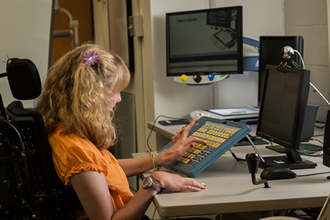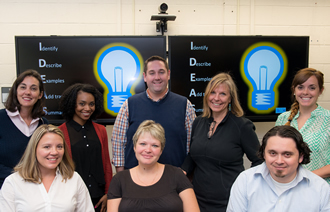Training Modules - MECTT
The Basics of Cultural Competence
This module provides participants with an overview of the course and introduces the underlying philosophies and cross-cutting themes of Multicultural Early Childhood Team Training. Participants are guided through exercises addressing cultural awareness and sensitivity.
Module 2
Cross-cutting Practices
This module addresses culturally competent family centered practices and effective teamwork. A problem solving process is presented in this module and will be revisited in other modules.
Module 3
Family Find
This module addresses the requirements in IDEA to identify children who may have special needs and to inform diverse communities know about early intervention and special education services. Participants identify innovative strategies and techniques for finding and establishing alliances with culturally diverse families.
Module 4
Communication and Partnerships
This module offers participants an opportunity to explore communication, especially between families and professionals from different cultural backgrounds. General principles of communication and specific cultural factors which influence interpersonal communication are addressed.
Module 5
Child Development at Home and School
Participants recall their own childhood/child rearing practices, and how these experiences influence their views of others. Various cultural perspectives on child growth and development are discussed and tied to implications for family centered services and related to cultural competence.
Module 6
Family Centered Assessment Practices
Assessment is defined; family centered assessment practices are described; and cultural factors influencing assessment are identified. The role of the family throughout the assessment process is discussed.
Module 7
Inclusive Services
This module focuses on strategies for providing services to young children with disabilities in places where other young children, who do not have disabilities, are typically found. Participants will explore parent/professional collaborative approaches for planning and will address dimensions of culture that may affect planning for services in natural or least restrictive settings.
Module 8
Individualized Family Service Plan and The Individualized Education Program
This module addresses the required components of the Individualized Family Service Plan and the Individualized Education Program from the perspective of how families from diverse cultures may participate as partners with professionals. Small group activities address cultural issues at IFSP/IEP meetings.
Module 9
Home Visits
This module explores the meaning of home and the importance of home visiting in early childhood special education. Participants are provided with strategies and techniques for conducting family centered home visits with culturally diverse families.
Module 10
Facilitating Transition
This module focuses on the importance of the transition process. Participants identify strategies for planning and adopting transition approaches that are family centered and culturally responsive.
Module 11
Program Change for Cultural Competence
Participants review what they have learned and share segments of the modules with program administrators. A process for identifying a target for program change is presented as the first step in action planning to increase family centered culturally competent practices.
Module 12
Developing An Action Plan
Participants apply what they have learned by problem solving and developing an action plan for change for their programs. Factors necessary for successfully making major system changes are identified.





